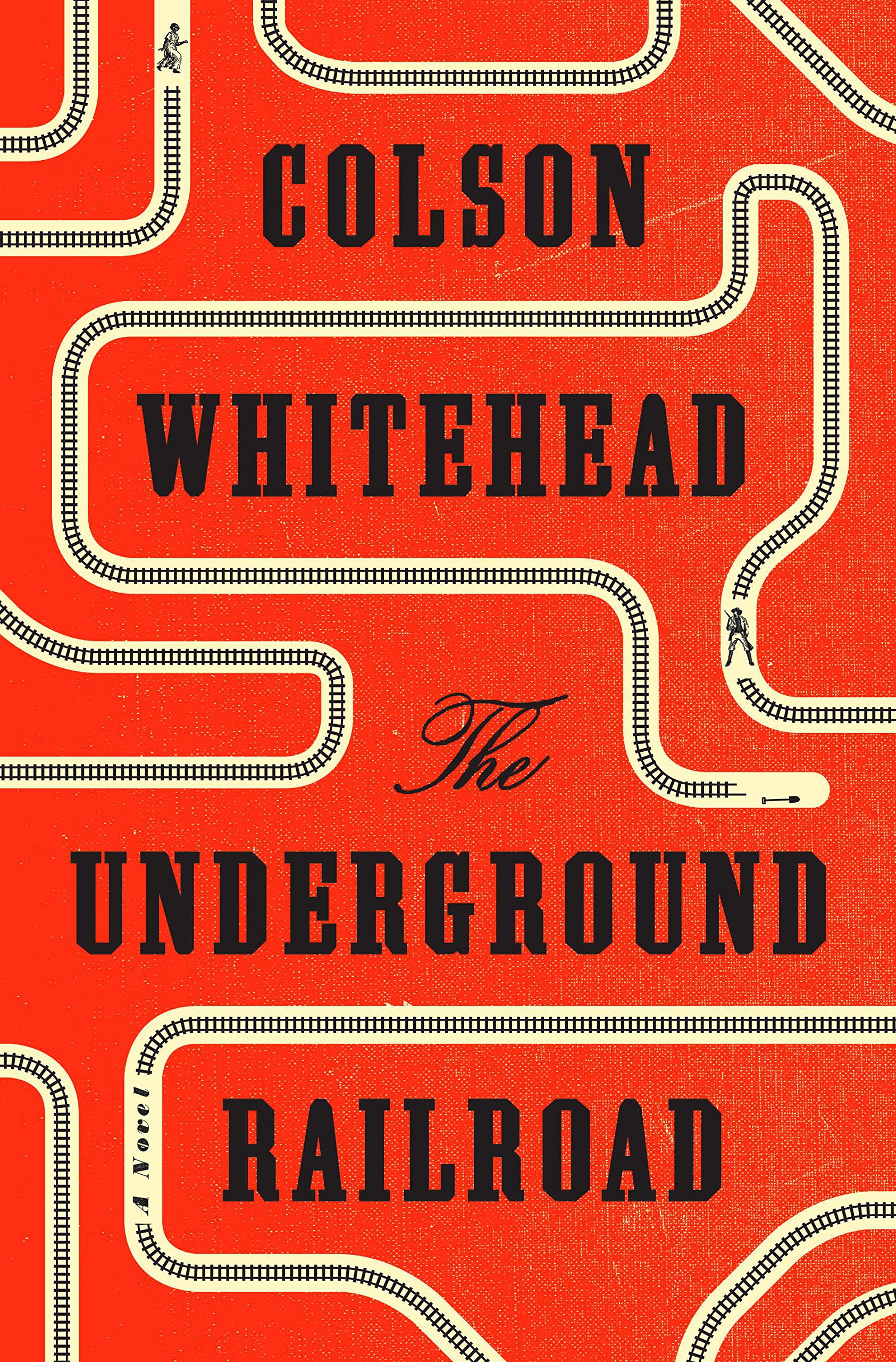Colson Whitehead’s The Underground Railroad, which recently picked up the National Book Award, is a novel which refuses to settle in any one niche. Packing the level of detail and care of a well-researched historical piece, the tale of young black woman Cora and her escape from a Georgian plantation also contains examinations of character in the face of trauma, William Gay-like passages on the stark beauty the South, plus a fabulistic thread that manages to transcend the slave story as told by Morrison and Hill. The result is something which both cultivates the imagination and quells it, simultaneously daring to dream while never losing sight of reality, no matter how harsh.
The central conceit is that the Underground Railroad is a literal thing, a subterranean train line which transports escapees across state borders. While its running is unreliable, its boxcars bumpy, its conductors terrified, the track provides a tangible symbol of hope for those fleeing captivity, especially, as is Cora’s case, for those pursued by slave catchers plucked straight from a Cormac McCarthy novel. Unfortunately, the journey is not a complete line to the apparent safety of the North, rather a patchy hop state to state, each new locale representing a different face of America, the flickering light of safety always at the end of a dark tunnel, no matter how far they travel.
Hence the balance between hope and reality becomes as much a part of the narrative as it is Whitehead’s writing. Cora faces a trade off between feeling and surviving, never giving up on knowing and being known, on loving, yet always ready to pitch up and leave, alone. For his part, Whitehead is committed to courage in both directions, possessing the bravery to see the human and the inhuman no matter how extreme the end, and thus preserving belief and reality. The semi-magical railroad for Cora is the semi-magical human spirit for Whitehead, small, important things beneath the surface which persevere in spite of the violence and suffering above.
There’s a scene in the novel where, presuming she’ll be undertaking some sort of behind-the-scenes manual labour, Cora takes a job at a museum, only to find that she’s actually a strange actor/object on display. Splitting her time between three sets – “Scenes from Darkest Africa”, “Life on the Slave Ship” and “Typical Day on the Plantation” – she must pose in costume for the public, who often bang on the glass and make inaudible comments. Of course, the museum scenes are nothing but banal and ignorant simulacra, though small details (birds hung from the ceiling that bring to mind carrion-feeders, wax dummies painted in disturbing hues) hint at the overwhelming horror behind the facade.
This voyeurism signifies a second assault by whites, a disinformation dressed as intellectual curiosity which slowly reworks black history to their own telling, a kind of semi-conscious attempt to attenuate their crimes even while such abuses were (or are) ongoing. Some reviews have touched upon the allegorical links between Whitehead’s writing and contemporary society, though the book is not so much fable of our times but rather the genesis story, the giant, ever-present thing that looms over everything that’s playing out today. As one character puts it in a particularly scathing and relevant piece:
“America, too, is a delusion, the grandest one of all. The white race believes – believes with all its heart – that it is their right to take the land. To kill Indians. Make war. Enslave their brothers. This nation shouldn’t exist, if there is any justice in the world, for its foundations are murder, theft and cruelty.”
Cora’s life almost plays like the museum displays in which she worked, a simplified journey through a decidedly unsimple array of evils and atrocities. She moves from scene to scene with little choice or reason – (Genuine) Typical Day on the Plantation, Run in with Bounty Hunters, Tuskegee-Style Medical Testing, Anne Frank-esque Attic Existence, White Supremacist Lynching – a tale at once unimaginably violent yet fundamentally inauthentic, institutions and systems reduced to recognisable heroes and villains so that they might become a little more fathomable. The result is a kind of game, the author daring us to imagine beyond the fabulism, us readers staring through the glass in a mixture of morbid curiosity and blank horror, plagued by the unshiftable unease unique to guilt.
The Underground Railroad is out now via Fleet (UK) and Doubleday (North America). Colson Whitehead’s Goodreads page is a good place to find out more about his previous work.

